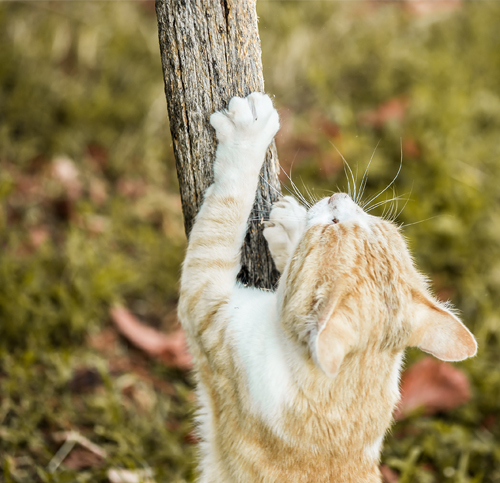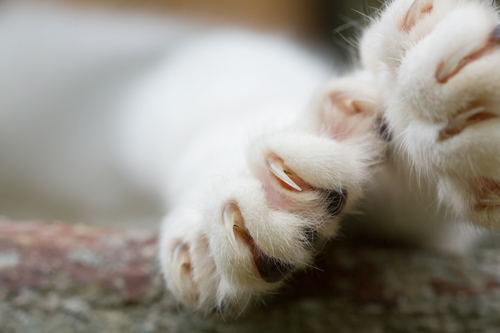|
|

This has been a universal question in the kitty kingdom for many years and has recently sprung to light due to advancements in veterinary declawing technology. There are two extreme sides of the spectrum regarding this matter, one stating that it is cruel and inhumane to declaw your cat and the other stating that is an effective safety measure when regarding your family members or other pets, as well as a convenience in terms of furniture protection. Whether or not you decide to declaw your cat, these important points should be brought to light.
It is a Medical Procedure With Real Surgical Risks
Oftentimes most people don’t think about declawing as a surgery. But that is exactly what it is — an amputation of their claws, which are part of their paws — and requires anesthesia, post-medical care, and recovery time. Any time an animal is placed under anesthesia there are respiratory risks. Only young, healthy cats should really be considered for this procedure, since it is an optional surgery. Infection is always a possibility and thorough after care is necessary in order to monitor and keep the sites clean.
The newest declawing technique is much more humane than the original procedure, which involved using a blade and physically slicing behind the nail bed. Nowadays most veterinarians implement a laser, which is less invasive and often results in faster healing times. Either way — declawing involves your cat feeling pain, although veterinarians will work to minimize this with medications during and after surgery.

Pros of Declawing
There are a few advantages to declawing your cat and some owners are willing to take on the surgical risks. Destruction of property, including furniture and clothes, can be a huge deterrent to owning a cat. Some cats are more prone to these behaviors than others, and for owners that are on the verge of surrendering their animals due to destructive behavior, declawing can be a good alternative. A declawed cat with a home is far better than one given up to a shelter. Other reasons for declawing include a history of fighting with other animals or previous attacks on humans. Safety in the household between cats and other animals should be a top priority and in this instance declawing can certainly be considered.
Cons of Declawing
All upsides have their downsides, and declawing more than other things. Declawing a cat leaves it without its primary defense mechanism and it can no longer be allowed to go outside. It might also impair its natural equilibrium and detract from otherwise normal activities such as climbing. There have also been reports of behavior and psychological issues, including cats not wanting to use the litter box post-procedure, and even visible depression.
Again, the surgical pain and stress of the procedure should be reiterated here. Even the most humane cosmetic surgery with proper anesthesia and post-surgical care will cause your cat some measure of distress and require a healing period. Your cat’s paws will be sore for a length of time regardless, spanning one week to one month.
Alternatives to Declawing
Many cat owners are opposed to declawing in general, but on account of behavioral issues feel like they have no choice except to make a change. Luckily, there are a few legitimate alternatives to declawing your cat.
-Keep their nails trimmed: This can prevent damage to furniture by reducing the sharpness of the nails. It will also lessen the severity of an injury in the possible event of your cat scratching a human or other animal.
-Provide a scratching post: Perhaps one of the easiest things to do is to provide somewhere for your cat to scratch freely, so that they don’t resort to the furniture. If you encourage them to use a scratching post early on in life, more than likely they will grow up knowing where they are supposed to scratch and avoid inappropriate places.
-Discouragement products: There are products on the market that actually discourage your cat from scratching, including sticky strips and distasteful sprays that are safe for your furniture but will deter your cat from scratching.
Tag
Tag